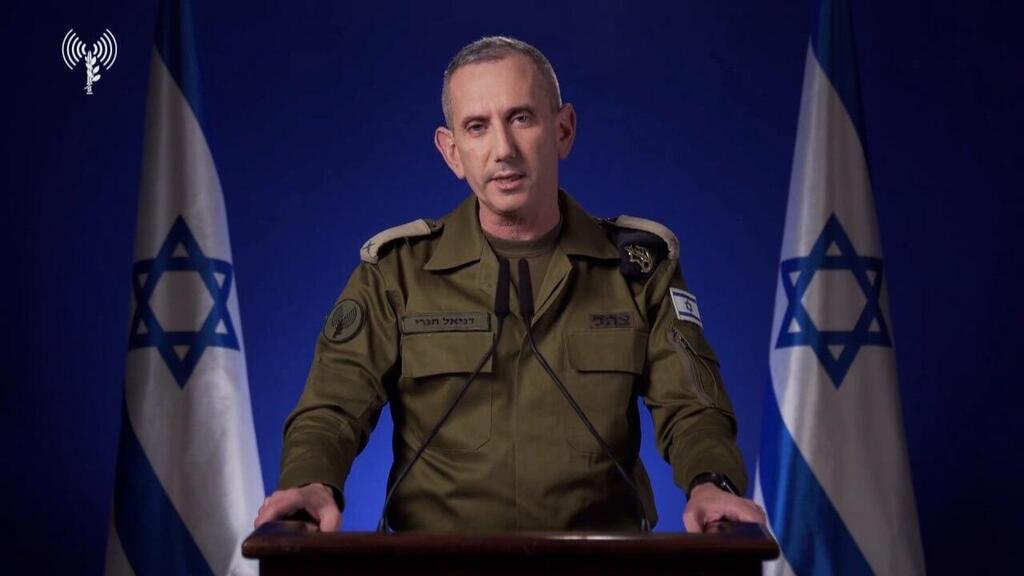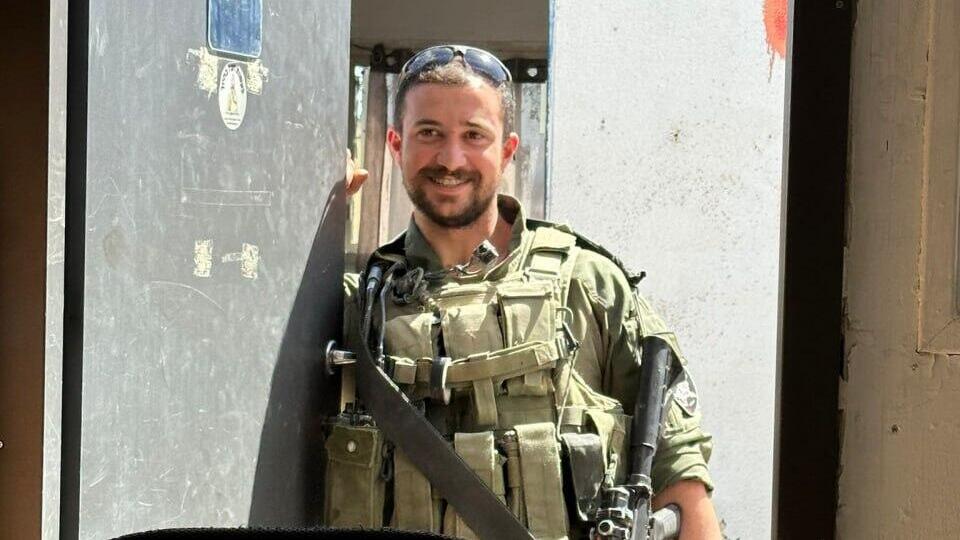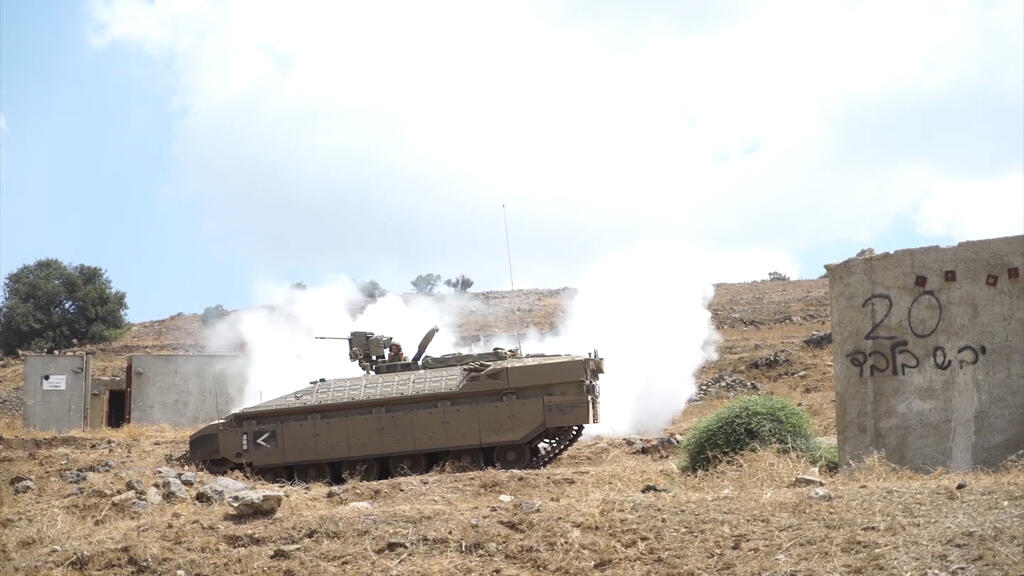Getting your Trinity Audio player ready...
The deadly blast that killed eight crew members of an IDF Namer armored personnel carrier in Rafah in the southern Gaza Strip likely occurred due to anti-tank fire or an explosive device planted in its path, IDF Spokesperson Rear Admiral Daniel Hagari said Saturday evening.
"Experts will examine the entire incident and everything that happened. Once the investigation is complete, we will publish all the details," Hagari said.
"In the early hours of the morning, after completing the attack on the northwestern part of the neighborhood, infantry, armor and engineering forces from the 401st Brigade entered the area in armored combat vehicles to establish positions. According to our current information, one of the engineering vehicles in the convoy experienced a powerful explosion, likely caused by an explosive device or an anti-tank missile. The eight soldiers who were killed were inside the armored vehicle."
In response to a question about whether Hamas targeted the APC, Hagari replied, "It is not an APC; it is an advanced armored vehicle, a Namera (a Namer refitted for combat engineering tasks). We entered this street with several vehicles, and it was not the first vehicle in the convoy. We will study the entire operational event and what triggered or caused the explosion that led to the soldiers' deaths.
"It is clear that we need to defeat the Rafah Brigade. Progress is being made, and there are significant achievements alongside the costs. The achievements are very substantial, and yes, we are approaching the dismantling of the Rafah Brigade."
Regarding this being the third armored vehicle disaster in the war, he said, "Overall, against the threats, the capabilities of the IDF on the ground protect the soldiers. When such a severe malfunction occurs, we investigate it thoroughly."
Among the fallen is Captain Wassem Mahmoud, 23, from Beit Jann. Captain Mahmoud was a deputy company commander in the 601st Engineering Battalion of the 401st Iron Trails Brigade.
The IDF updated that the families of the fallen soldiers have been notified, but their names have not yet been released. Hagari requested to respect the bereaved families and not to publish the names of the fallen before they are officially released. "We are aware that some people are releasing the names before we have approved their publication, he said. "Please respect the bereaved families. Our first commitment is to them."
The IDF reported that the soldiers' armored personnel carrier – an engineering Namer – hit an explosive device near the Tel al-Sultan refugee camp. The disaster occurred around 5:15 a.m. An engineering unit attached to a Givati Brigade battalion fought with them overnight, and together, according to the IDF, they eliminated about 50 terrorists. After the operation, the unit completed its mission and was on its way to a "staging point" – a secured house where the forces were stationed.
On the way to that point, a large explosion occurred, apparently without any prior shooting. The armored vehicle, which was the fifth or sixth in the convoy, caught fire from the explosive device. It is still unclear whether the device was placed there or attached to the Namerha. It is being investigated whether it was an IED placed underneath. The vehicle burned for a long time, and rescuers could not reach it for about two hours. It was later towed to a safe location.
Prime Minister Benjamin Netanyahu on Saturday evening paid tribute to the eight fallen soldiers, saying there was "no alternative to victory" in the war. "Our hearts shatter at the immense loss. The entire nation of Israel embraces the bereaved families in their deep sorrow," he said.
"When the price is so heavy, we must remember what we are fighting for: to ensure our existence and future and to bring back all our captives. This monstrous enemy has no intention of stopping here. Along with the rest of Iran's axis of evil, it will continue its attempts to destroy us. If we don't stop it, it will not stop. Therefore, there is no alternative to victory."





